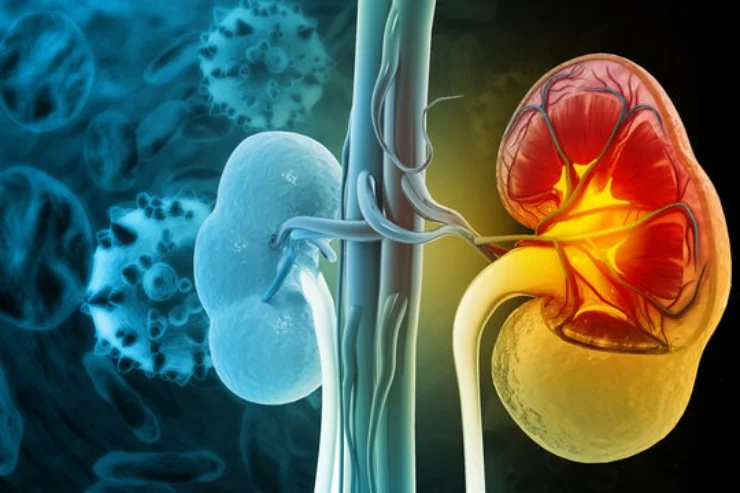Chronic Kidney Disease

Chronic Kidney Disease (CKD)
Chronic Kidney Disease (CKD) is a long-term condition characterized by the gradual loss of kidney function over time. The kidneys play a crucial role in filtering waste products and excess fluids from the blood, maintaining electrolyte balance, and producing hormones that regulate blood pressure and red blood cell production. In CKD, these functions are progressively impaired, leading to various health complications.
The primary causes of CKD include diabetes, hypertension, recurrent kidney infections, and genetic disorders such as polycystic kidney disease. Risk factors include obesity, smoking, a family history of kidney disease, and advancing age. Symptoms often remain subtle in the early stages but may include fatigue, swelling in the legs and ankles, decreased appetite, and changes in urine output as the disease progresses.
Management of CKD focuses on controlling underlying conditions, such as managing blood sugar in diabetes and lowering blood pressure. Lifestyle changes, including a kidney-friendly diet, regular exercise, and avoiding nephrotoxic substances, are vital. Advanced stages may require dialysis or kidney transplantation.
Early detection through routine screening, especially for high-risk individuals, is crucial for slowing CKD progression and improving quality of life. Regular medical check-ups and adherence to treatment plans are essential to managing this chronic condition.